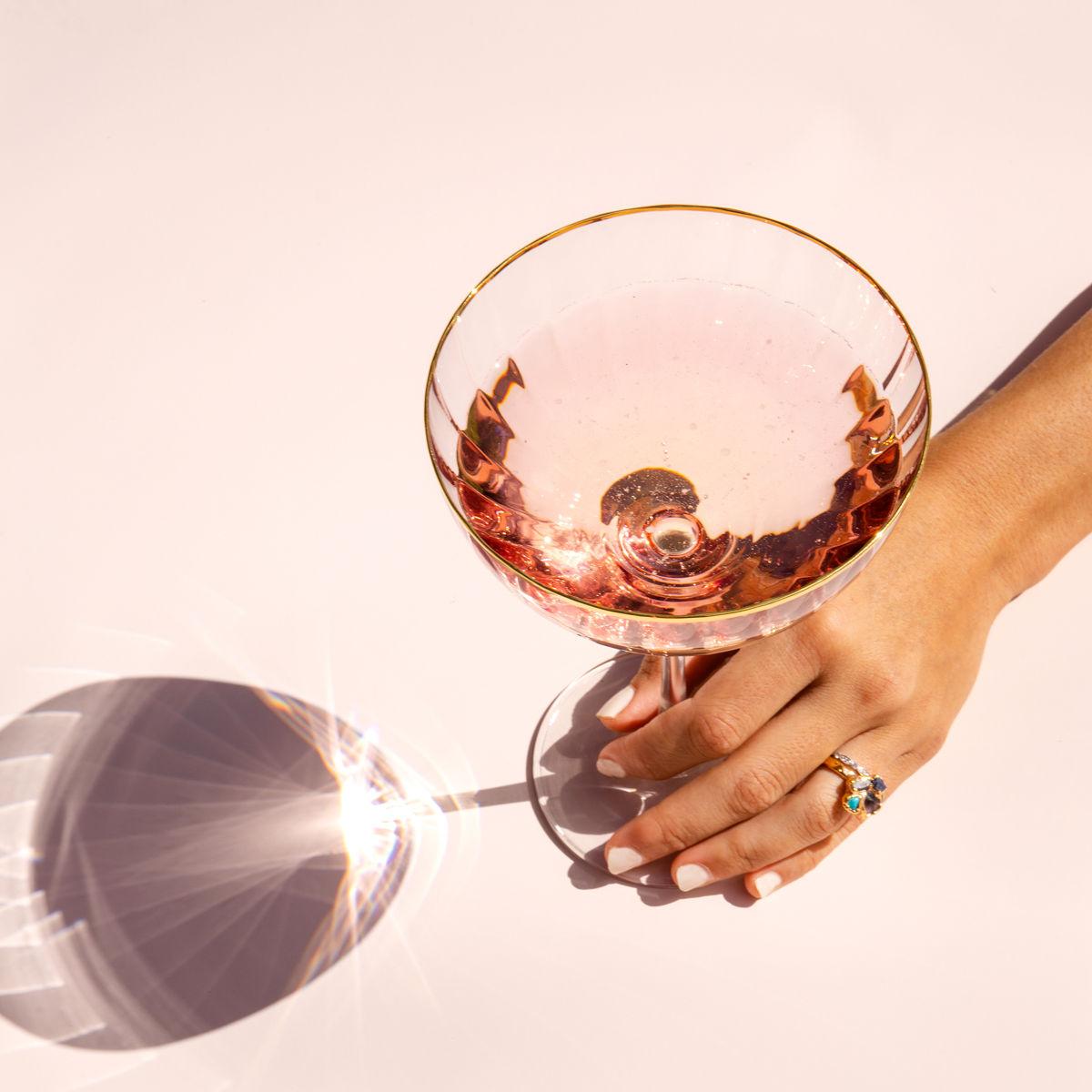Whether you’re sober-curious, or just looking to reach your health goals, moderating (or cutting out) your alcohol use is something to explore. Current research suggests that even light to moderate drinking comes with some risk. Drinking as little as possible (or not at all) appears to be the safest option.
Right now, there seems to be a shift in our culture around alcohol. Many people are gravitating away from alcohol, and the industry around non-alcoholic drinks is seemingly booming. If you’re wondering how (and why) to drink less alcohol, read on to learn some attainable strategies that will fit into your life as you build new habits around drinking.
The Basics on Alcohol
When drinking in home settings or at parties, it can be difficult to understand exactly how much you are drinking. But to understand your alcohol consumption in relation to medical guidelines, it’s important to understand what counts as a “serving.”
One serving of alcohol is equal to:
- 5 ounces of wine
- 12 ounces of beer
- 1.5 ounces of liquor
Experts classify drinking in “moderation” (or, relatively safe amounts) as:
- Up to 1 serving per day for people assigned female at birth
- Up to 2 servings per day for people assigned male at birth
And they classify “heavy” drinking as:
- 4+ servings per sitting for people assigned female at birth
- 5+ servings per sitting for people assigned male at birth
Binge drinking is classified as:
- 8+servings per week for people assigned female at birth
- 15+ servings per week for people assigned male at birth
Risks of Alcohol Consumption
Historically, moderate alcohol intake was thought to be safe. New research suggests that even light to moderate drinking may increase our risk for certain cancers including breast, colorectal, and oral cancers. Alcohol consumption may also make achieving heart, liver, and gut health more challenging, and hinder weight loss efforts.
Alcohol and Heart Health
Heavy alcohol intake increases the risk for high blood pressure, heart attack, and stroke. Consuming less than 4 drinks/week can reduce your risk of heart disease, contrary to what you may have heard about red wine being good for heart health. Current research does not suggest that drinking red wine directly improves heart health. The American Heart Association also does not recommend drinking red wine for heart health.
Alcohol and Gut Health
Research has shown alcohol consumption can increase heartburn, acid reflux, bloating, constipation, and diarrhea. It can also negatively impact our gut bacteria.
Alcohol and Weight Loss
Between the empty calories contained in alcohol, and the calories and sugar that are often contained in mixers, alcohol use can add a significant amount of calories to your daily intake without contributing to your nutrient needs. Furthermore, for some people, the lowered inhibitions of drinking can lead to overeating, which can also make weight loss goals
more difficult to achieve. Additionally, excessive alcohol intake can leave you tired or hungover the next day, which can lead to disruption of your normal daily routine. For example, you may be more inclined to skip your morning workout and nutrient-packed breakfast, which can affect your nutrition and physical activity goals for the day.
The Benefits of Drinking Less Alcohol
Weight Loss
Many people cut back on alcohol as a “reset” from the holidays. Truth be told, alcohol can prohibit weight loss—without the empty calories of alcohol, you’re likely consuming far fewer calories per day, and without a hangover, are more likely to stick to your healthy habits.
Better Sleep
Alcohol can disrupt the two most important parts of our sleep; Slow Wave Sleep, which is the part that physically refreshes us the most, and REM sleep, which is the part that helps us learn and remember. Research shows an inverse relationship between alcohol consumption and sleep duration as well.
Hydration
Hydration is an absolutely crucial component of health. Alcohol is a diuretic, meaning it affects the kidneys and makes you urinate. It also inhibits the kidneys’ ability to produce the hormone vasopressin, which encourages your body to reabsorb water as opposed to sending it straight to the bladder to be flushed out. This is why your skin is puffy and you have dark circles under your eyes after a night out on the town. For a remedy for this, check out this post on how to properly hydrate!
Better Skin
Have bags under your eyes from not enough sleep? Check your alcohol intake. Small amounts of alcohol can increase blood flow and cause your blood vessels to dilate. And this increased flow to the skin’s surface can make you look red and blotchy. It can also cause your face to become puffy as fluid leaks from the blood vessels. Interestingly, too much alcohol can have the opposite impact on your vessels, causing them to constrict and increase blood pressure. What’s more, excess alcohol intake can lead to depletion of vitamins that slows down cell renewal.
Improved Mood
While alcohol instantly relaxes and makes us feel better in the moment, some individuals experience depressive symptoms after drinking due to changes in the chemicals in the brain. Research shows that heavy drinking interferes with the neurotransmitters that are responsible for our mental health. And it has even been found to lower the levels of serotonin in our brain that help regulate our mood.
Strategies for Drinking Less
- Set clear limits and stick to them
- Define specific, measurable goals (SMART girls) for alcohol intake
- Unwind Better
- Do you often drink a glass of wine or other alcoholic beverage to unwind? Try sipping on a cup of tea, a new stress relieving activity like crafts or games, or a positive distraction like a walk with your favorite podcast or playlist. Alternate between alcoholic and non-alcoholic beverages
- Find Your Swap
- Find a nonalcoholic drink that you love, like a flavored seltzer or NA mixer that you can combine with club soda for a DIY mocktail. You can either alternate alcoholic beverages with your nonalcoholic swaps, or sub them out altogether for a hangover-free tomorrow.
- Enjoy Activities that Don’t Revolve Around Drinking
- Go for a group hike
- Join a morning run club
- Visit a craft mocktail bar
- Volunteer at an animal shelter or join a community cleanup
- Host a board game night with mocktails
- Try art classes like crocheting, pottery, or sewing
- Go to your local performing arts center or to a movie
- Beat the clock at an escape room
- Take a dance class or boxing class
Call on a Support System
When embarking on changing your relationship with alcohol, make sure you have a support system to lean on. Being able to call on family or friends when it gets difficult is crucial. You can also consult with your doctor, a mental health professional and a RD for personalized strategies and neutral, non-judgmental support along the way. There are also many online forums or community groups focused on reducing alcohol consumption, if you want to be in community with others on a similar journey, and find accountability and support in those groups.
It’s Possible To Drink Less Alcohol
We hope you read this and take away that a life without—or with less alcohol is possible, and that the health and emotional benefits of cutting back outweigh the discomfort. If you’re looking for tailored support for making the lifestyle change of drinking less alcohol in tandem with reaching your health goals, book a session with a Culina Health registered dietitian.






